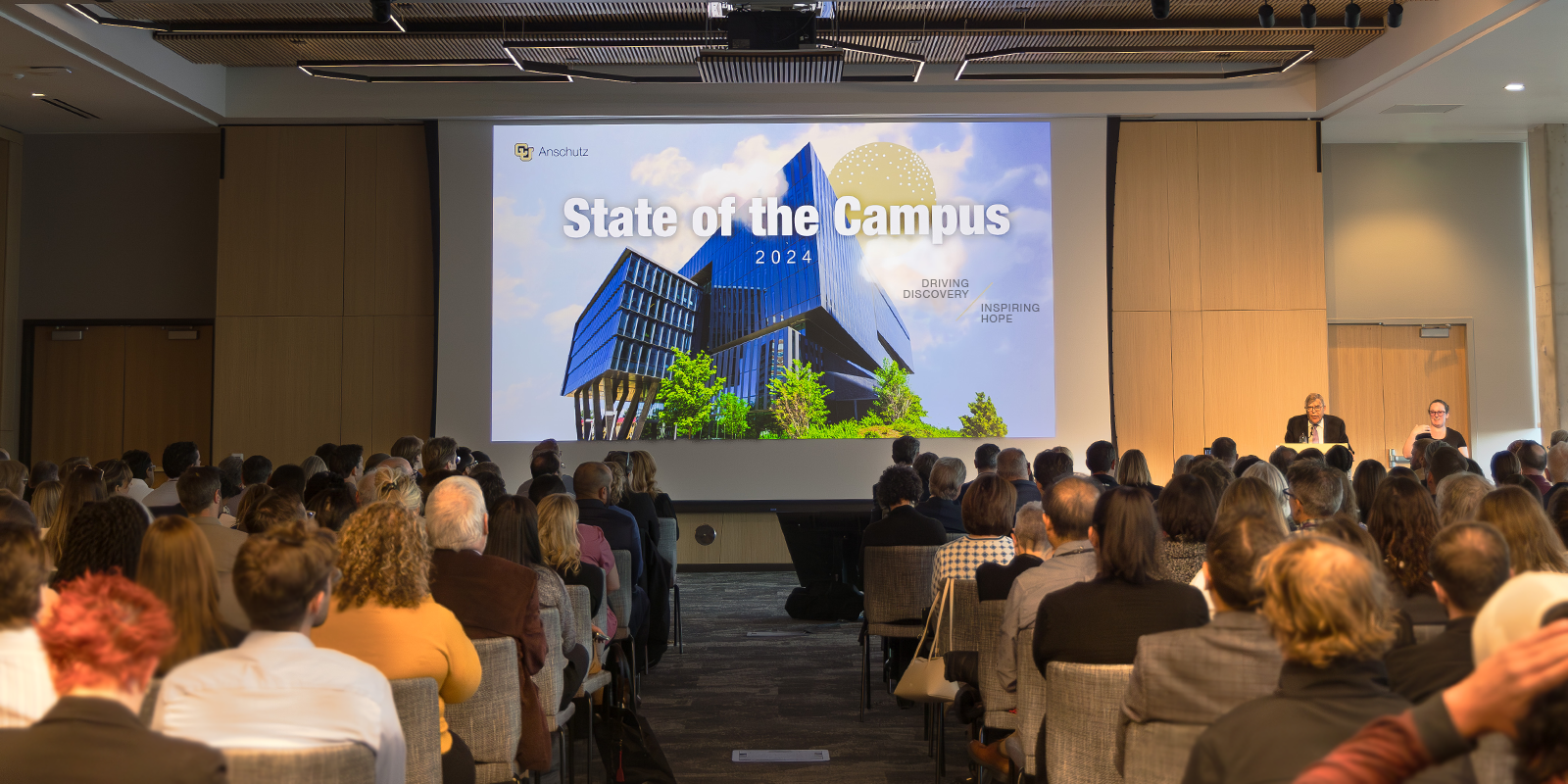When the pandemic struck last winter, it upended our lives in ways few could have imagined. Many of us work from home now, our kids go to school online, we wear masks and avoid our elderly or sick relatives for fear of passing along a potentially deadly illness. Meanwhile, lockdowns and isolation have spawned a mental health crisis that we are only now beginning to fully grasp.
In this series of podcasts, we talk to some of our top experts about the evolution of the coronavirus – where we were, where we are, where we will be a year from now. Each one has a gift for making the complex accessible and are frequently sought out by the media for their expertise.
Listen to CU Anschutz 360: COVID Reflections with Jonathan Samet, MD, and Glen Mays, PhD:
“I'll take it as a flattering comparison. And I don't know if it's because of our hair color and height, but... certainly, Tony Fauci has been a critical public figure. I think he's been tireless in his willingness to communicate to the public. Across my career, I think I have… never said no to a request in the media. I've always felt this was a part of my job, to talk to the media and I have done so. And I think like Dr. Fauci, both of us should have retired a while back, but here we are. Caught in the pandemic.” – Jonathan Samet, dean of the Colorado School of Public Health at CU Anschutz.
He’s been called Colorado’s ‘Dr. Fauci’ for his calm, measured counsel on navigating the pandemic. He’s advised Gov. Jared Polis and created models for how the coronavirus would likely spread throughout Colorado. It’s all been a dizzying and often exhausting experience for Dr. Jonathan Samet, dean of the Colorado School of Public Health.
The media seek out his expertise and he seldom says no. Why? In a time of misinformation and political division, Samet wants to convey as much accurate information as possible.
In this podcast, he talks about the challenges of creating models, what they mean and don’t mean. We all create models, Samet says. When we go to the airport, we create a model for our arrival, analyzing methods of transportation, the weather, parking and the time of day. His team also uses contingencies as they try to map out how a disease will spread.
“We need more talented people in public health and health professions generally, and so I think that's going to be another long-term consequence of this event. Our public health and healthcare workforce is going to be in good hands for the future.” – Glen Mays, PhD, chair of Department of Health Systems, Management and Policy in the Colorado School of Public Health.
Glen Mays studies health systems and policies on a granular level. He’s spent decades analyzing how to handle large scale health emergencies and boost the resiliency of public health care systems.
But this pandemic threw him a curve, well many curves. Mays learned that the public health care system’s ability to detect hazards and share information had serious weaknesses. It didn’t adapt quickly in many cases to new problems. It was also slow in developing new testing algorithms and rapidly deploying them around the country. And few predicted the racial dimensions of the disease, how it would disproportionately hit Black and Latino communities.
At the same time, there have been successes. Stay-at-home orders, long planned for but never before implemented, proved very effective at containing the spread of the virus. Mask wearing, initially dismissed as ineffective, has evolved to the point where it is mandated in many areas of society. The importance of communicating accurate health information to the public has never been greater and Mays has been called upon by the media to do just that week after week after week.
In this podcast, Mays talks frankly about the evolution of the pandemic from its origins, to where we are now, to where we may be in six months. He talks about gaps in the systems and how we can be better prepared for the next pandemic.



